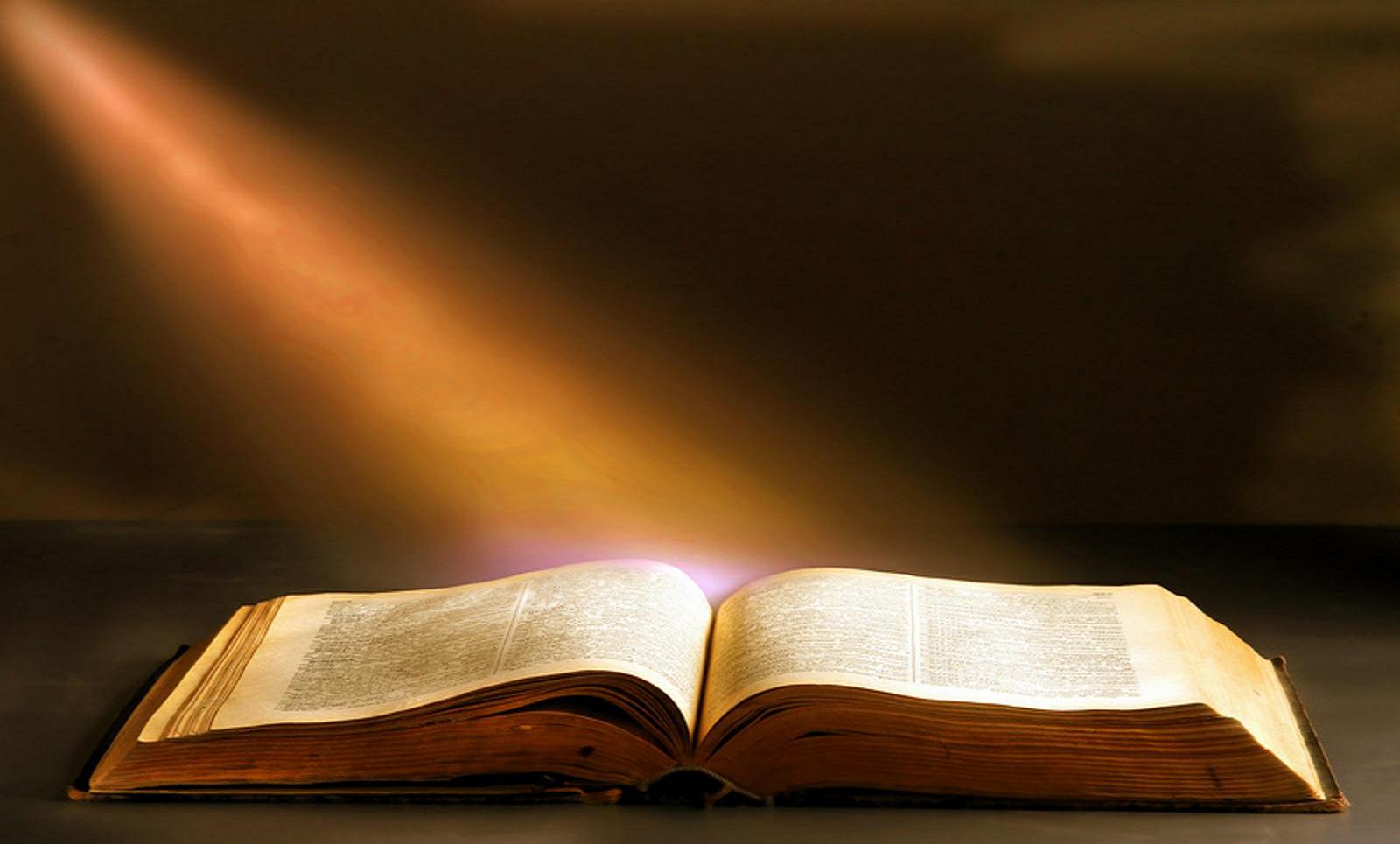
-by Joel Peters
“Much to their chagrin, Protestants are actually guilty of violating their own doctrine. The doctrine of Sola Scriptura prohibits anyone from adding to or deleting from the Bible, but Protestants have, in fact, deleted seven entire books from the Old Testament, as well as portions of two others. The books in question, which are wrongly termed “the Apocrypha” (“not authentic”) by Protestants, are called the “deuterocanonical” (“second canon”) books by Catholics: they are Tobias (Tobit), Judith, 1 and 2 Machabees, Wisdom, Ecclesiasticus (or Sirach), and Baruch. Portions of Daniel and Esther are also missing.
In defense of their deficient Old Testament canon, Protestants invariably present one or more of the following arguments: 1) the shorter, Pharisaic (or Palestinian) canon (39) of the Old Testament was accepted by Christ and His Apostles, as they never quoted from the deuterocanonical books; 2) the Old Testament was closed by the time of Christ, and it was the shorter canon; 3) the Jews themselves accepted the shorter, Pharisaic canon at the Council of Jamnia (or Javneh) in 90 A.D.; and 4) the deuterocanonical books contain unscriptural material.
Each of these arguments is wholly flawed.
1) Regarding the claim that Christ and His Apostles accepted the shorter, Pharisaic canon, an examination of the New Testament’s quotation of the Old Testament will demonstrate its fallacy. The New Testament quotes the Old Testament about 350 times, and in approximately 300 of those instances (86%), the quotation is taken from the Septuagint, a Greek translation of the Old Testament in widespread use at the time of Christ. The Septuagint contained the dueterocanonical books. It is therefore unreasonable and presumptuous to say that Christ and His Apostles accepted the shorter Old Testament canon, as the clear majority of the time they used an Old Testament version which did contain the seven books in question.
Or, take the case of Saint Paul, whose missionary journeys and letters were directed to Hellenistic regions outside of Palestine. It has been noted, for example, that his sermon at Antioch in Pisidia “presupposed a thorough acquaintance among his hearers with the Septuagint” and that once a Christian community had been founded, the content of his letters to its members “breathed the Septuagint.” (40) Obviously, Saint Paul was supporting the longer canon of the Old Testament by his routine appeal to the Septuagint.
Moreover, it is erroneous to say either that the deutero-canonical books were never quoted by Christ (41) and His apostles or that such citation is a prerequisite for a book’s inclusion in the Biblical canon. According to one list, the deutero-canonical books are cited or alluded to in the New Testament not less than 150 times! (42) In addition, there are Old Testament books, such as Ecclesiastes, Esther and Abdias (Obadiah), which are not quoted by Christ or the Apostles, but which are nonetheless included in the Old Testament canon (both Catholic and Protestant). Obviously, then, citation by Christ or the Apostles does not singlehandedly determine canonicity.
2) Regarding the claim that Christ and the Apostles worked with a closed Old Testament canon – which Protestants maintain was the shorter canon – the historical evidence undermines the allegation. First, there was no entity known as the Palestinian canon, for there were actually three cnaons in use in Palestine at that time, (43) in addition to the Septuagint canon. And second, the evidence demonstrates that “Judaism in the last two centuries B.C. and in the first century A.D. was by no means uniform in its understanding of which of its writings were considered sacred. There were many views both inside and outside of Israel in the first centuries B.C. and A.D. on which writings were deemed sacred.” (44)
3) Using the Council of Jamnia in support of a shorter canon is manifestly problematic for the following reasons: a) The decisions of a Jewish council which was held more than 50 years after the Resurrection of Christ are in no way binding on the Christian community, just as the ritual laws of Judaism (e.g., the prohibition against eating pork) are not binding on Christians. b) It is questionable whether or not the council made final decisions about the Old Testament canon of Scripture, since “the list of books acknowledged to ‘defile the hands’ continued to vary within Judaism itself up through the 4th century A.D.” (45) c) The council was, to some extent, a polemic directed specifically against the “sect” of Christianity, and its tone, therefore, was inherently opposed to Christianity. These Jews most likely accepted the shorter Pharisaic canon precisely because the early Christians accepted the longer Septuagint canon. d) The decisions of this council represented the judgment of just one branch of Pharisaic Judaism within Palestine and not of Judaism as a whole.
4) Lastly, for Protestants to aver that the duetero-canonical books contain unscriptural material is decidedly a case of unwarranted dogmatism. This conclusion was reached simply because the so-called Reformers, who were clearly antagonistic toward the Catholic Church, approached the Bible with an a priori notion that it teaches “Reformed” (Protestant) doctrine. They discarded the deutero-canonical books because in certain instances these books contain decidedly Catholic doctrine, as in the case of 2 Machabees 12:42-46, which clearly supports the doctrine of prayers for the dead and hence of Purgatory: “It is therefore a holy and wholesome thought to pray for the dead, that they may be loosed from sins.” (2 Mach. 12:46). Luther, in fact, wanted to discard also the New Testament books of Revelation and James, the latter of which he termed an “epistle of straw” and which he felt had “nothing evangelical about it” (46) – no doubt because it clearly states that we are saved by faith and works (cf. James 2:14-26), in contrast to Luther’s erroneous “faith alone” doctrine. Luther was ultimately persuaded by his friends to retain these books.
In addition to the above is the fact of historical testimony and continuity regarding the canon of the Bible. While we have seen that there were disputes regarding the Biblical canon, two considerations are nonetheless true: 1) the deuterocanonical books were certainly used by Christians from the 1st century onward, beginning with Our Lord and His disciples, and 2) once the issue of the canon was settled in the 4th century, we see no change in Christian practice regarding the canon from that point onward. In practice, the only challenge to and disregard of these two realities occurs when the so-called Reformers arrive on the scene in the 16th century and decide that they can simply trash an 11-centuries-long continuity regarding the canon’s formal existence and a nearly 15-centuries-long continuity regarding its practical existence.
The fact that any individual would come along and single-handedly alter such a continuity regarding so central an issue as which books comprise the Bible should give the sincere follower of Christ serious pause. Such a follower is compelled to ask, “By whose authority does this individual make such a major change?” Both history and Luther’s own writings show that Luther’s actions were based on nothing but his own personal say-so. Surely such an “authority” falls grossly short of that which is needed for the canonical change he espoused, especially considering that the process of identifying the Bible’s canon was guided by the Holy Spirit, took centuries, and involved some of the greatest minds in Christianity as well as several Church Councils. More disturbing still is the fact that the other so-called Reformers – and Protestants ever since – have followed suit by accepting Luther’s changed canon, yet all the while they claim to honor the Bible and insist that nothing can be added to or deleted from it.”
Love,
Matthew
39. The Pharisaic canon, which was used by Jews in Palestine, did not contain the deuterocanonical books. The Septuagint or Alexandrian canon, which was used largely by Jews living in the Dispersion (i.e., Hellenistic regions outside of Palestine), did contain the deuterocanonical books.
40. W. H. C. Frend [Protestant author], The Rise of Christianity (Philadelphia, PA: Fortress Press, 1984), pp. 99-100.
41. For some examples, compare the following passages: Matt. 6:14-15 with Ecclesiasticus (Sirach) 28:2; Matt. 6:7 with Ecclesiasticus (Sirach) 7:15(14); Matt. 7:12 with Tobit (Tobias) 4:16(15); Luke 12:18-20 with Sirach 11:19 (Ecclus. 11:19-20); Acts 10:34 with Ecclus. 35:15 (Sirach 35:12); Acts 10:26 with Wisdom 7:1; and Matt. 8:11 with Baruch 4:37.
42. Lee Martin McDonald [Protestant author], The Formation of the Christian Biblical Canon, Appendix A (Nashville, TN: The Parthenon Press, 1988). (Listing entitled “New Testament Citations and Allusions to Apocryphal and Pseudepigraphal Writings,” adapted from The Text of the New Testament, by Kurt Aland and Barbara Aland, two well-known Biblical scholars.)
43. They include a) the Qumran canon, which we know of from the Dead Sea Scrolls, b) the Pharisaic canon, and c) the Sadducees/Samaritan canon, which included only the Torah (the first books of the Old Testament).
44. McDonald, op. cit. p. 53.
45. Ibid, p. 60.
46. Hartmann Grisar, S.J., Martin Luther: His Life and Work (B. Herder, 1930; Westminster, MD: The Newman Press, 1961), p. 426.

